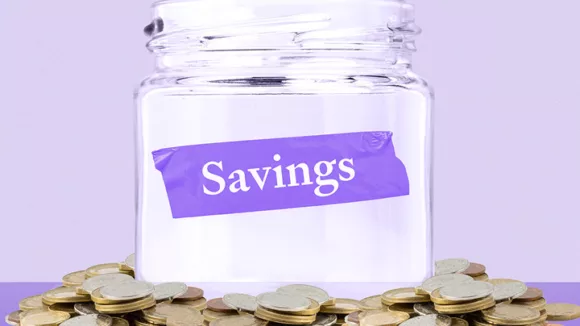
Number Crunching
Savings calculator - how much can you save?
Figure out how much you can save through your savings plan
Property Investment
5 min read

Author: Nefe Teare
Financial adviser at Opes. Formerly a senior adviser at one of NZ largest investment firms. Owned 3 properties by 30.
Reviewed by: Ben King
Ben has 14 years of experience as a mortgage advisor and background as an investment adviser.
“How much should I be saving per week?” And “How much should I be investing?” are some of the 2 most common questions investors ask me.
And I get it. We want to know if we’re doing enough. And if we’re making the best use of our money.
But at the same time, we also don’t want to save every penny we earn. Because you still want to live a good life today. And that often requires money.
So how do you strike the right balance between saving and investing?
In this article, you’ll learn a few practical rules of thumb, that way you can get a sense of whether you are saving enough (or not).
Over the years, different financial writers and gurus have come up with a few popular targets that you might aim to save.
Back in the 1920’s a man called George Clason wrote one of the most popular personal finance books of all time: The Richest Man in Babylon.
In it he suggested saving 10% of your net income. That’s the money hitting your bank account after tax.
So if you have $1,200 a week hitting your bank account from your job – aim to save $120 a week.
These days, personal finance expert, Dave Ramsey has taken to TikTok to preach the same thing.
It's simple and achievable. And if you’re not saving anything it’s a good place to start.
And when I say saving/investing. I use those terms to mean the same thing. You take that $120 a week and invest it in shares, property, or whatever your preferred investment is.
The next rules is the 50/30/20 rule.
This is where you spend:
This rule comes from the book All Your Worth by Elizabeth Warren and her daughter Amelia Warren Tyagi.
No we get to the most aggressive approach.
Followers of the FIRE (Financial Independence, Retire Early) movement aim to save up to 70% of their income – so they can retire by 40 or even earlier.
That’s not for everyone, but some Kiwis are trying it.
If you earned $100k a year (pre-tax), that means that about $1,393 would hit your account each week.
So if you’re saving 70% that’s $975 a week to save!
That leaves just $418 a week to live on. That’s to cover your rent/mortgage, food and living expenses.
Honestly, it's not really plausible for most people. So that’s why the up to 70% part is important. 70% isn’t the target, it’s the maximum that some people aim for.
The more you save and invest, the wealthier you’ll be in the future. That’s all else being equal.
So if you save 20%, you’ll have more money in 10 years than if you saved 10% of your income.
But, the good news is, these are just ballpark figures. You can decide which one you aim for. It’s not that any of them is right or wrong.
People often ask: “What counts as saving? Does KiwiSaver count? Does my mortgage count?”
Honestly, you can set any ‘rules’ that you want. But here’s my general rules:
So if you are paying 3% of your pay into KiwiSaver, that money never hits your account.
So don’t include that when calculating your savings rate. Treat it as a bonus.
I have this rule to keep things really simple for people.
If you start thinking “What if I’m contributing 8%+ into KiwiSaver. That is savings.” It is, but you never see that money hit your account. So I’m aiming for simple maths that you can do in your head, rather than in a spreadsheet.
Using your savings to pay down your mortgage fast? Yup, that counts as savings. But only the extra repayments.
So if your minimum mortgage payment is $500 a week. And you decide to pay $600 a week. Then that extra $100 a week counts as savings.
But when I said “paying off debt counts as savings”, if you’re just making minimum repayments on a credit card ... nope that doesn’t count.
Some property investors say to me: “But what if I’m topping up a rental property?”
Sometimes, if you buy a rental property (and get a big mortgage) the rent might not cover all the costs.
So an investor might top up the property by $150 a week. Does that count as savings?
Yes. Even though it’s not saving in the traditional sense, that is money that is being used to help fund your financial future.
I’m writing this article because New Zealanders are really bad at saving.
A KiwiBank survey found that 39% of investors save less than $100/month.
It also found that 65% of Kiwis save less than 5% of their income.
The average savings rate in NZ is -2%. That’s right – on average we’re spending more than we earn.
And of course, that won’t surprise some people. We’ve just been through a ‘cost of living crisis’. Inflation has run high. Interest rates shot up. Even high-income earners are feeling the pinch.
But if the average Kiwi spends 2% more than they earn … something has got to change.
Here’s how to figure out how much you are saving. Ask yourself these 2 questions:
Then divide your savings by your income. And multiply it by 100. That’s your savings rate.
( Savings / Income ) x 100 = Savings Rate
So if you got paid $1,500 for the past fortnight. And you transferred $0 into a separate savings or investment account. Then your savings rate is 0%.
If you transferred $150 into a savings or investment account, your saving rate is:
( $150 / $1500 ) x100 = 10%.
Then pick a goal. How much do you want to save? The answer could be 0%. It could be 10%. It can be whatever you want.
And if you are currently saving less than your goal, you need to save or invest more.
If you are currently saving more than your goal, perhaps you can invest less and enjoy life more.
Financial adviser at Opes. Formerly a senior adviser at one of NZ largest investment firms. Owned 3 properties by 30.
Nefe is a Registered Financial Adviser at Opes Partners with 7 years’ experience in financial services. Before joining Opes, she was a senior adviser at one of New Zealand’s largest investment firms, managing $13 million in KiwiSaver and managed funds. She’s helped clients invest over $26 million in property and owned 3 properties before her 30th birthday.
This article is for your general information. It’s not financial advice. See here for details about our Financial Advice Provider Disclosure. So Opes isn’t telling you what to do with your own money.
We’ve made every effort to make sure the information is accurate. But we occasionally get the odd fact wrong. Make sure you do your own research or talk to a financial adviser before making any investment decisions.
You might like to use us or another financial adviser